Discover Ancient Greece Declassified
Ancient Greece Declassified

Ancient Greece Declassified
Author: Dr. Lantern Jack
Subscribed: 1,953Played: 41,708Subscribe
Share
Description
The podcast that transports you to the ancient world and back, with some good conversation along the way. It's not just about ancient Greece. It's about a huge chunk of human history that the Greek texts give us access to: from Egypt and Babylon, to Persia, to Carthage and Rome, we'll sail the wine-dark sea of history with some expert guides at the helm. Topics will include archaeology, literature, and philosophy. New episode every month.
71 Episodes
Reverse
Plato's Republic isn't just a cornerstone of Western thought—it's a mirror reflecting the challenges of our own time. In this episode of Ancient Greece Declassified, host Lantern Jack teams up with scholar Gina White to deliver a one-stop, accessible guide to this timeless work—exploring its big ideas, enduring impact, and eerie relevance to today's world. ------------------ Support the show on Patreon: https://patreon.com/greecepodcast ------------------ Timestamps [00:50] Introduction to the Republic [05:35] A bird's-eye view of the entire work [15:20] Book 1: What is justice? [20:56] Book 2: The immoralist challenge [25:33] Book 3: Building the ideal city [34:00] Book 4: Justice defined [43:10] Book 5: Philosopher kings [49:30] Book 6: The Form of the Good [56:33] Book 7: The Cave [1:02:44] Book 8: Bad constitutions, bad souls [1:05:23] Book 9: The secret misery of tyrants [1:07:17] Book 10: The Myth of Er
How did Sparta—a mere city-state with an agrarian economy and barely any economic growth to speak of—rise to become the supreme power in ancient Greece? We investigate in conversation with renowned historian Eric W. Robinson, author of the forthcoming book "Spartan Legend." ------------------ Support the show on Patreon: https://patreon.com/greecepodcast ------------------ Timestamps [03:28] Origins of Spartan power [12:26] Democratic aspects of the Spartan constitution [17:25] Athenian admiration of Sparta [23:00] How good were Spartan armies? [27:05] Robinson's theory of a Spartan "Mystique" [44:04] Why Sparta won the Peloponnesian War against Athens [48:46] Why Spartan power declined
Marcus Aurelius became emperor of Rome in 161 AD and went on to win several wars against the northern barbarians. But it wasn't his military exploits that earned him everlasting fame. Rather, it was his philosophical mind and the writings he left behind. In this episode, we are joined by author and scholar Judith Stove to explore the character, writings, and legacy of Rome's "philosopher king." Stove's latest book is called Marcus Aurelius and His Legacy: Seeking Rome's Kingdom of Gold. ------------------ Support the show on Patreon: patreon.com/greecepodcast
Some announcements for those of you who care about what's happening at AGD behind the scenes...
I chat with friend and fellow podcaster Doug Metzger about how I first became fascinated with the ancient world and share some of the adventures I had on the way to getting a PhD in Classical Philosophy. ------------------ Support AGD on Patreon: patreon.com/greecepodcast ------------------ Timestamps [01:25] Why I started AGD [05:15] Why Stoicism is misunderstood today [11:20] Debunking two big myths about the ancient world [14:45] How I got interested in ancient Greece [19:58] Reggie Foster, renegade priest [25:08] What makes Ancient Greek a precise and musical language [33:57] Hitchhiking adventures [44:27] AGD tours [53:35] The genius of Aeschylus' "Oresteia"
During the Persian Wars, the city of Athens was completely razed to the ground by the Persian army. And yet, from its ashes, a new Athens was born, more powerful and magnificent than any other city in the Mediterranean. How did the Athenians pull that off? In this finale to our Persian Wars saga, we explore the final battles of the conflict and the clever machinations of Themistocles—one of the chief masterminds and architects of Athenian power. Contents of the episode, with timestamps: [05:35] Aftermath of Salamis [15:50] Xerxes Goes Home [23:20] The Final Battles (Plataea and Mycale) [39:08] The Themistoclean Walls [46:05] Themistocles' Exile and Death [55:50] Conclusion ------------------ Support Ancient Greece Declassified on Patreon: patreon.com/greecepodcast
Unveiling the wild world of ancient Greek and Roman novels with Doug Metzger, host of the "Literature and History Podcast." ------------------ Support Ancient Greece Declassified on Patreon: patreon.com/greecepodcast ------------------ Contents of the episode, with timestamps: 04:22 When did novels first arise? 09:12 The four genres of ancient novels 11:39 The typical plot (Callirhoe) 17:55 Daphnis and Chloe 21:10 Euripides' romances 28:17 Narrative in the Bible 32:43 Evolution of the ancient novel 34:27 Leucippe and Clitophon 35:47 Heliodorus' Aethiopica 37:35 Lucian and the influence on modernity 43:08 The Second Sophistic 47:14 Greek VS Roman novels 53:44 The X-rated stuff
What did ancient music sound like? In this episode, you will hear three songs that are over 2000 years old! Few people in the world today know more about ancient music than our guest in this episode. Claire Catenaccio is an assistant professor of classics at Georgetown University who specializes in the study of ancient drama and its modern reception. Her recent book "Monody in Euripides" explores monody – namely solo actor's song – in the tragedies of Euripides. Her scholarship is informed by her experience as a director and historical consultant in many modern productions of ancient Greek theater plays. Contents of the episode, with timestamps: [02:07] What evidence do we have for ancient music? [13:05] What kind of musical notation did the ancient Greeks use? [13:51] The Song of Seikilos (oldest surviving song with musical score) [20:30] What the aulos (the main musical instrument on stage) sounded like [23:21] The origins of music in Greek tragedy [31:30] Cash prizes and the professionalization of acting/singing [34:45] The incredible popularity of Euripides' new music [37:20] How and Why Euripides' "Orestes" completely rewrites Aeschylus' "Eumenides" [52:30] What Euripides' songs sounded like (Electra's monody from Euripides' "Orestes") ------------------ Support Ancient Greece Declassified on Patreon: patreon.com/greecepodcast
Even after thousands of years of supposed progress in philosophy, there are still some who maintain that the entire history of western philosophy consists of footnotes to Plato. But who was Plato the man? If there is anyone who can answer that question, it's our guest in this episode. Robin Waterfield is a renowned scholar of antiquity who has written the first ever full biography of the ancient philosopher in English. Check out the book here. Contents of the episode, with timestamps: [04:10] Plato's early life [06:46] Relationship to Socrates [12:27] Philosophical method [14:53] Theory of Forms [18:27] How Plato became famous [23:42] Sophists VS Philosophers [31:55] Founding the Academy [35:25] Relationship to Aristotle [47:07] Political intrigues in Sicily [48:51] Disilusionment and later works ------------------ Support Ancient Greece Declassified on Patreon: patreon.com/greecepodcast Or make a one-time donation: paypal.me/greecepodcast
In 480BC the Persian Empire invaded Greece with the largest military force the world had ever seen. Meanwhile in Athens, a man named Themistocles had spent the last ten years preparing for this moment. He had come up with a plan to defeat Persia, but it would require a mix of strategy, intrigue, deception, and plain old good luck... Contents of the episode, with timestamps: [05:45] How to Win Friends and Influence People [13:10] The Mines of Laurion [19:30] Athens VS Aegina [25:10] Battle of Thermopylae [32:00] Battle of Artemisium [40:10] The Wooden Wall [49:55] The Battle of Salamis [53:30] Conclusion ------------------ Support Ancient Greece Declassified on Patreon: patreon.com/greecepodcast Or make a one-time donation: paypal.me/greecepodcast
The three decades from 508-478BC were possibly the most consequential in all of ancient history. In this episode and the next, we tell the story of the Greco-Persian Wars through the eyes of Themistocles, the Athenian mastermind who guided the Greeks to victory. Contents of the episode, with timestamps: [04:50] Themistocles' Childhood and the Athenian Revolution [10:40] Democracy's Early Challenges [16:10] The Demagogue [26:35] The Ionian Revolt [31:25] Marathon [43:05] "Rejoice! We Are Victorious!" ------------------ Find out more about the upcoming AGD "Persian Wars" Tour in Greece: greecepodcast.com/tour4 ------------------ Support Ancient Greece Declassified on Patreon: patreon.com/greecepodcast Or make a one-time donation: paypal.me/greecepodcast
AGD is going back to Greece this January 3-11 for another epic adventure! This time we'll be exploring the Persian Wars and the profound effect they had on Greek civilization. We will visit all the major focal points of the Greco-Persian showdown (Marathon, the Acropolis, Eretria, Salamis, Thermopylae, Plataea, and Delphi) as well as a wide variety of other fascinating historical sites. Check out our highlight reel from the first tour: https://www.youtube.com/watch?v=1g-w7u6aQz0 To reserve your spot, email us at greecepodcast@gmail.com For the itinerary visit https://greecepodcast.com/tour4
Bret Devereux is a military historian at North Carolina State University and author of the recent viral article "Spartans Were Losers: The US Military's Admiration of a Proto-Fascist City-State is Based on Bad History." He joins us to explain why he thinks that the traditional image of Sparta as an egalitarian society of warrior badasses is a lie. You can find his blog, where he writes extensively on Sparta, here: https://acoup.blog/2019/08/16/collections-this-isnt-sparta-part-i-spartan-school/ ------------------ This episode is available in video format on the Lantern Jack YouTube channel: https://youtu.be/VngbinpNGIE ------------------ Support Ancient Greece Declassified on Patreon: patreon.com/greecepodcast Or make a one-time donation: paypal.me/greecepodcast
As our world becomes increasingly hi-tech, more and more people have been turning to ancient wisdom traditions in search of meaning. There are two schools of ancient philosophy in particular that have seen a meteoric revival in recent years: Platonism and Stoicism. Cognitive scientist John Vervaeke joins us to explore why this is happening. ------------------ Join the upcoming AGD Tour in Greece: greecepodcast.com/tour ------------------ Support Ancient Greece Declassified on Patreon: patreon.com/greecepodcast Or make a one-time donation: paypal.me/greecepodcast
AGD is going back to Greece this fall (Oct. 11-19) for another epic adventure! This time we'll be exploring areas that in ancient times lay in the shadow of – or in direct conflict with – the Athenian hegemony. Check out our video from the first tour: https://www.youtube.com/watch?v=1g-w7u6aQz0 To reserve your spot, email us at greecepodcast@gmail.com For the itinerary visit https://greecepodcast.com/tour
This time we're taking a little break from Greece to explore the broader history of democracy. Was democracy really a Greek invention? Historian David Stasavage, author of The Decline and Rise of Democracy, thinks it was not. And in today's episode he explains why. --------------- Support Ancient Greece Declassified on Patreon: patreon.com/greecepodcast Or make a one-time donation: paypal.me/greecepodcast
Polybius' theory of anacyclosis is the most sophisticated theory of political (r)evolution to have emerged from ancient Greek and Roman political thought. ------------------ To watch the highlight real from the last AGD tour in Greece, click here. ------------------ To read the passage in Polybius where he discusses anacyclosis click here. ------------------ If you'd like to read more about the theory of anacyclosis, I've written a few blogs on the subject: Anacyclosis, Act 1: From Monarchy to Tyranny Anacyclosis, Act 2: The Rise of Republics Anacyclosis, Act 3: The Rise and Fall of Democracy
AGD is going back to Greece this winter (Jan. 3-11) for an epic tour of Greece's northern regions, focusing on mountains and oracles. For more information or to reserve your spot, email us at greecepodcast@gmail.com
Plato argued that the inevitable next step in political evolution after democracy is tyranny. Many political thinkers throughout history agreed with him. Were they right? ------------------ Support Ancient Greece Declassified on Patreon: patreon.com/greecepodcast Or make a one-time donation: paypal.me/greecepodcast --------------- A full transcript of this episode with references can be found on our website at greecepodcast.com
Was Marcus Aurelius really the enlightened ruler that history books and modern movies portray him as? And is his brand of Stoic philosophy applicable to the modern world? With us to discuss these and other questions is Donald Robertson, a psychotherapist and the author of How to Think Like and Emperor and Verissimus. ------------------ Support Ancient Greece Declassified on Patreon: patreon.com/greecepodcast Or make a one-time donation: paypal.me/greecepodcast


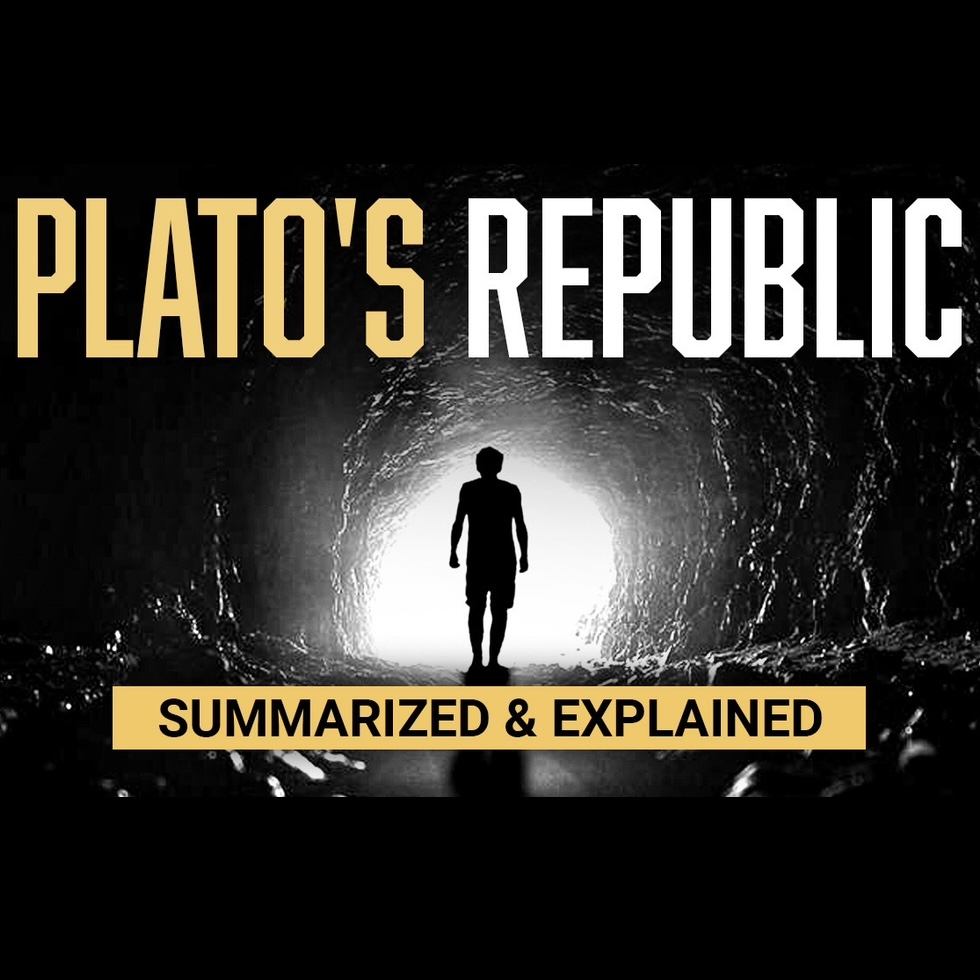
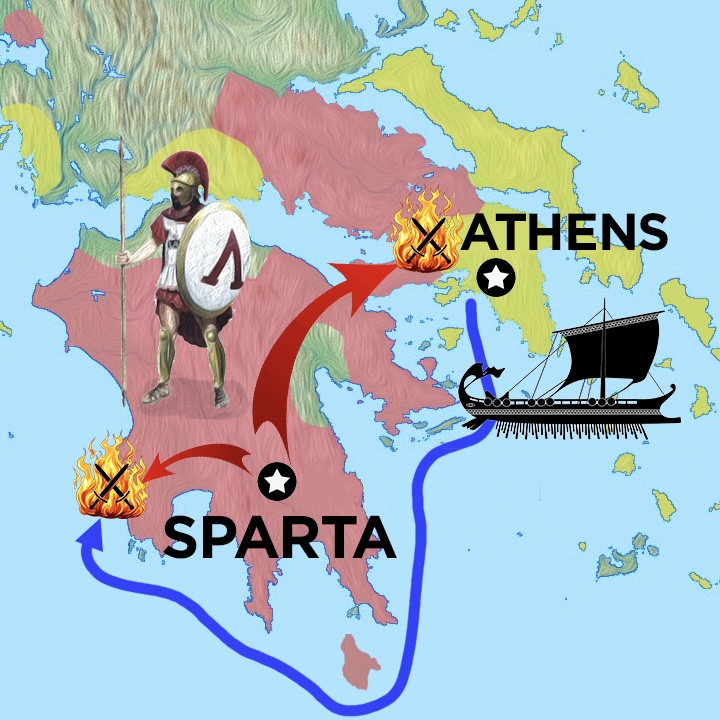
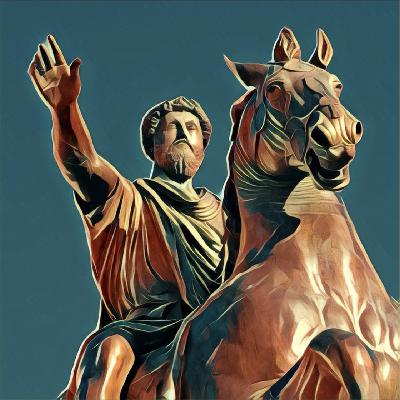

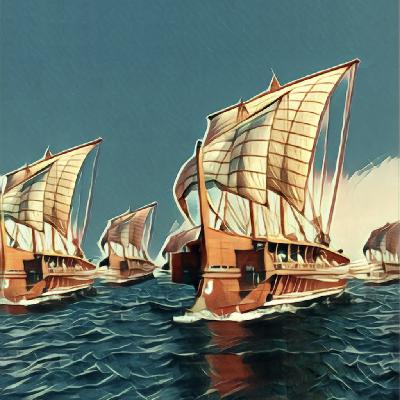


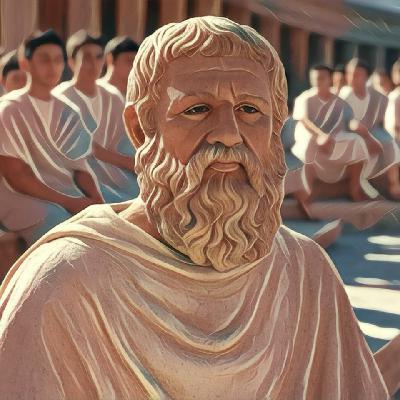
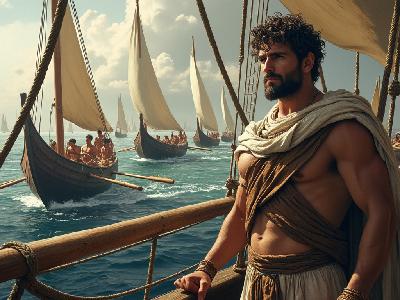

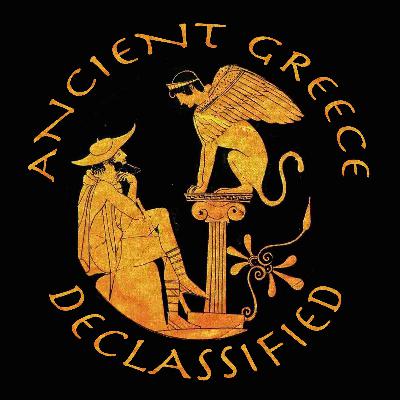



I've been going back through old episodes. This one actually gave me goosebumps, more than once. Outstanding. I have not heard the word Utilitarianism since college years ago. I truly is apt for describing our world today.
The BS in this episode would make Scott Horton's head explode.
The BS in this episode would make Scott Horton's head explode.
Where are you Jack? Please come back and continue to declassify ancient Greece and perhaps even Rome...
Bret Devereux cannot even pronounce the name of the Spartan lawgiver, Lycurgus, correctly. The "g" is a hard g as in girl, not a soft g, pronounced "dz" as in giant. His thesis is manifestly absurd even by the simple standard of common sense that I am at a loss as to why he was given airtime on this otherwise intelligent podcast platform.
Brett Devereaux clearly never participated in a half time marching band where constant practice is a huge part of their success. Spartans trained rigorously to master the synchronized, highly disciplined coordinated movements needed to maintain the cohesion of a phalanx formation during a battle. He is a crank and does not deserve to be given time here on a podcast generally given to serious classical scholarship.
Welcome back Lantern Jack! You have been missed.
Aeschylus fought in both Persian Wars which were each led by a tyrannical king, Darius and Xerxes, who invaded Greece by sea. In his play "Agamemnon," Aeschylus portrays Agamemnon as a tyrannical king who invades the civilized city of Troy and destroys it, just as the Persians destroyed Athens during their second invasion. In the Iliad, the Greeks are portrayed as rapists and pillaging pirates, led by the incompetent, deceitful bully Agamemnon.
Agamemnon certainly did have a choice. He could have sacrificed himself. He could have chosen not to go to war. Aeschylus considers the Trojan War an abomination. Agamemnon's conduct in the war as described in the Iliad was reprehensible. Many Greeks died to enrich him; he kept most of the spoils. And other Greeks committed unspeakable atrocities including rape, baby murder, desecration of Athena's temple and theft of her palladium. Hence, she punished them on their return; many didn't make it.
Achilles was a brute. His grief over the death of Patroclus was mixed with the guilt he felt for sending his friend into battle, knowing the risk. Hector is the hero who is defending his family against the greedy, marauding Greeks. Homer depicts the leader of the Greek expedition as an incompetent, blustering bully while Priam is depicted as a kind and benevolent patriarch whose love for his son gives him great courage. Homer depicts Achilles as defiling Hector's corpse, an act which outages the gods. But in the last scene the valiant, Hector is heroized by the Trojans and especially by the Trojans women, and it is this scene which closes the story.
Episode 21 about how to succeed in the Iron Age with Alicia Stallings is one of the best in this superlative series. I have listened to it at least three times. Ms. Stallings translation of Hesiod's "Works and Days" is entertaining and relatable to a modern reader and really brings Hesiod's work to life. The conversation as always is intelligent and far ranging, full of surprising insights about life in archaic Greece. I have read other translations of this poem by Hesiod but none compare to this stellar work. I love this series and the generous tributes Lantern Jack gives to classical scholars. I wish Ms. Stallings would translate more ancient Greek poetry.
Greek tragedy was performed in theaters, not amphitheaters which were circular or elliptical and free standing structures built of concrete like the Colosseum in Rome. Amphi means two. Greek theaters were built on hillsides with a semicircular construction.
This is incredibly high-quality content. Few people in the history of the world have had the opportunity to listen to a Princeton philosopher talk about the Cave analogy for an hour.
If Stanford professor Ian Morris is correct about the Golden Arches" theory which claims that countries which have McDonalds never go to war against each other, then the fact that McDonalds completely exited Russia on May 16, 2022, as a protest against the Russia invasion of Ukraine, is an ominous sign indeed
Another brilliant discussion on universal themes and historical trends from ancient civilizations. I would venture one theory as to why the Spartans refused the Persian offer to become the aristocratic rulers of all of Hellas. The Spartans lived by an ancient law code laid down by Lycurgus which warned of the dangers of great wealth and a luxurious lifestyle. They had an unusual symbiotic relationship with the Messenians, a conquered and subject.people, who worked the land as Helots but who did not have to live the rigorous life of the Spartan citizen soldier. I think that the Spartans could simply not imagine another way of life after many generations living in their traditional society. The Spartans were very proud, very conservative, and distrusted outsiders. They did not collect tribute from their allies the way Athens did during its imperial century. As citizen soldiers, a lasting peace would have deprived them of their identity. The Spartans have had centuries of negative press s
There are many places in ancient Greek texts where the term "god' is used rather than "gods". However, I think it is a mistake to interpret this as a call for monotheism. Rather, it is similar to our use of "man" in the sense of mankind except here it would be godkind. An example is the expression"man's inhumanity to man".
This wonderful discussion of the nature of philosophy between two brilliant minds gives rise to many questions. I have to push back on the idea which Prof. Laks attributes to Heraclitus which claims that knowing things doesn't give you insight. It seems that knowing things does indeed lead to insights and this in turn leads to further, deeper reflection. For example, I wondered what Parmenides would think of the Big Bang theory of creation. Our curiosity has led to the amazing Webb telescope whose images are now revealing problems with the theory. Like these hazy ideas of being, becoming, and the nature of reality, perhaps we are misinterpreting the information (red shift) that gave rise to the idea that the universe is expanding and which in turn led to the idea of the Big Bang. Perhaps after all Parmenides was right and it all just is, changing within itself, but was always just here, existence.
Loved this... fascinating analysis. Most of the reasons for hating Plato seem to have their roots in arrogance, specifically that the can be only One Way to understand reality. It's striking that so many of the defences of Plato refer to scientists. As a physicist turned statistician, I'm all too familiar with the lessons in modesty meted out to those who aspire to absolute, perfect knowledge!
I am so looking forward to this series. That this 2500 year old treatise on governing is so relevant today proves the maxim "Plus ça change, plus c'est la même chose." Because human nature.
I just found this podcast and it's so awesome.I hope one day thousands of years from now someone sees this comment and knows how great this podcast was.Hello future historians.